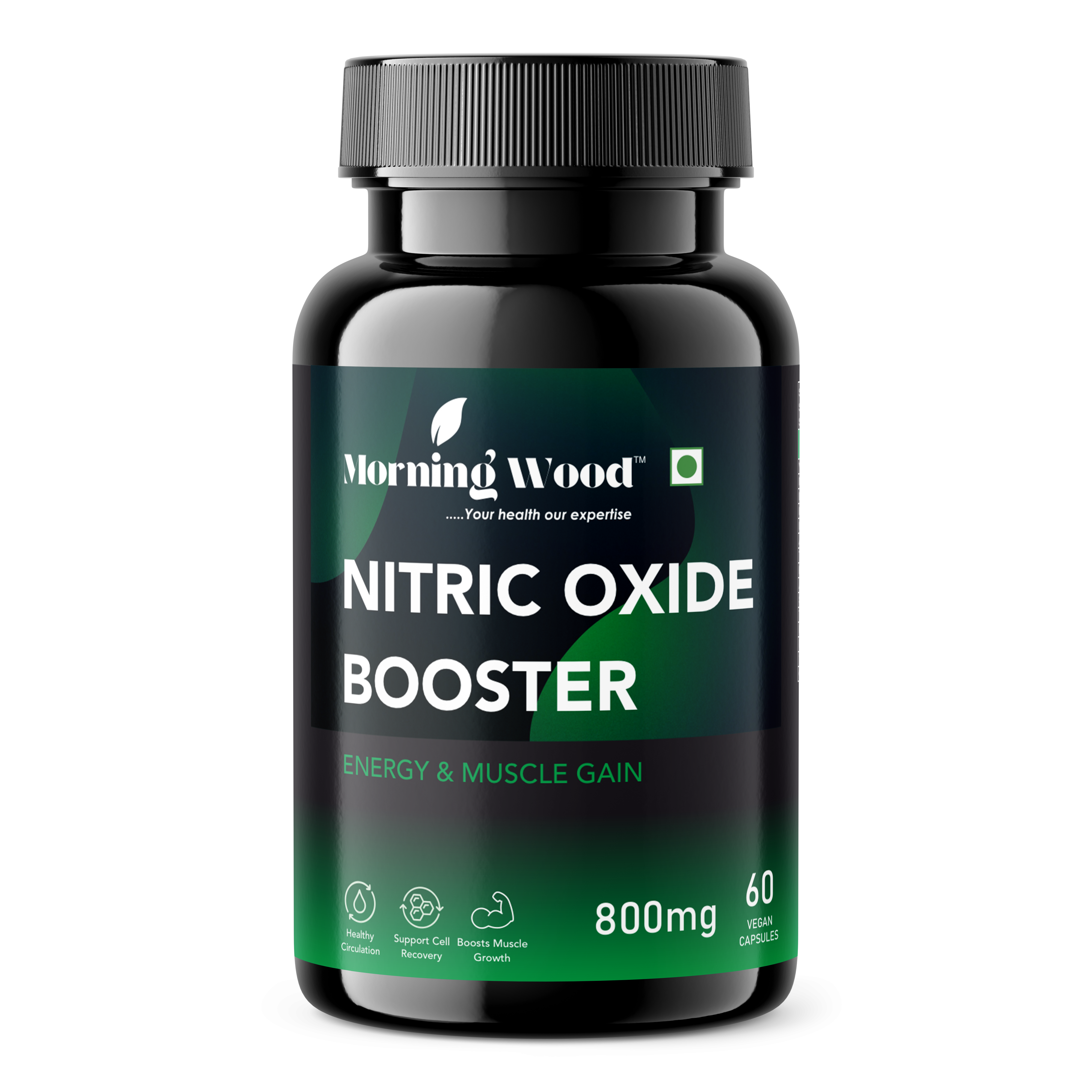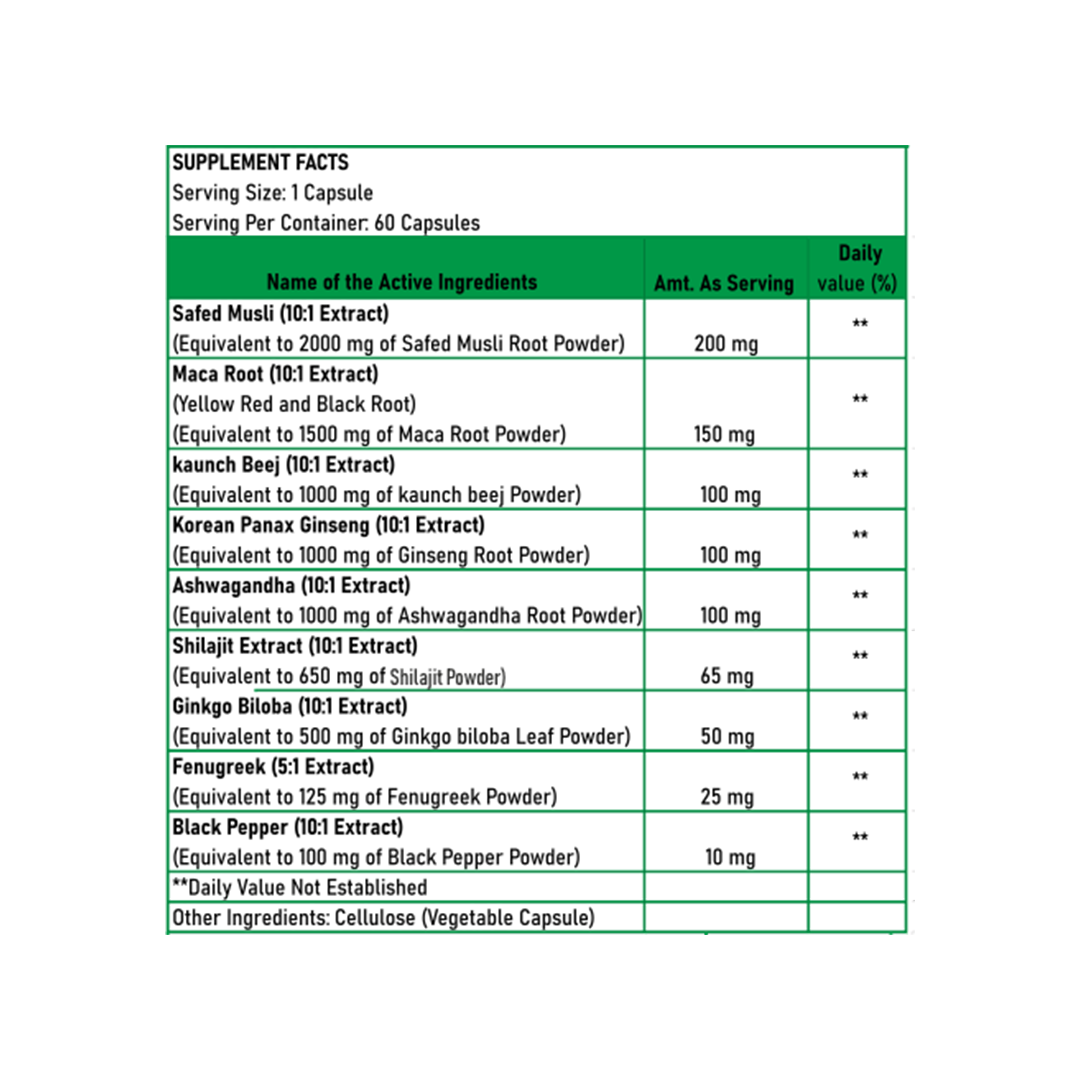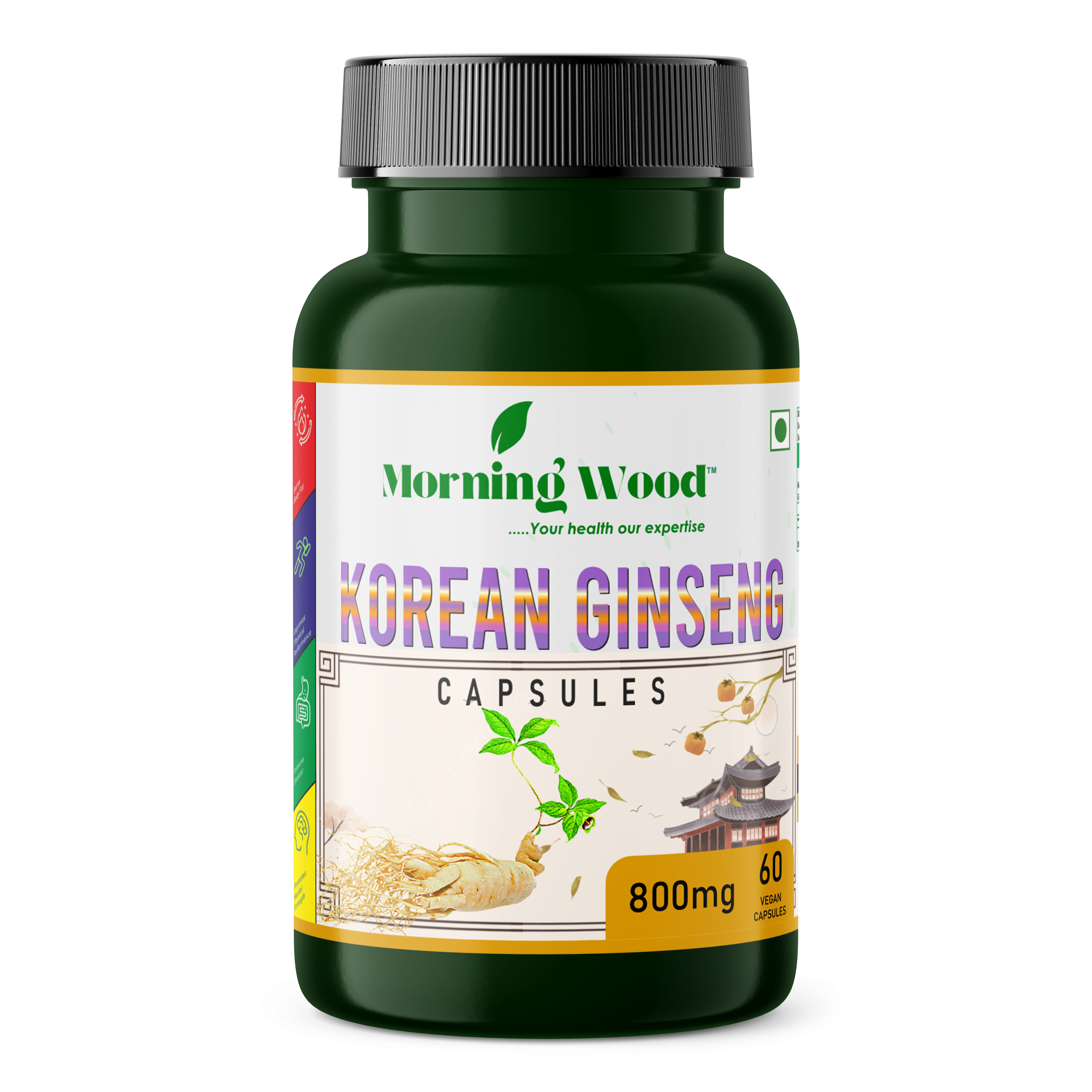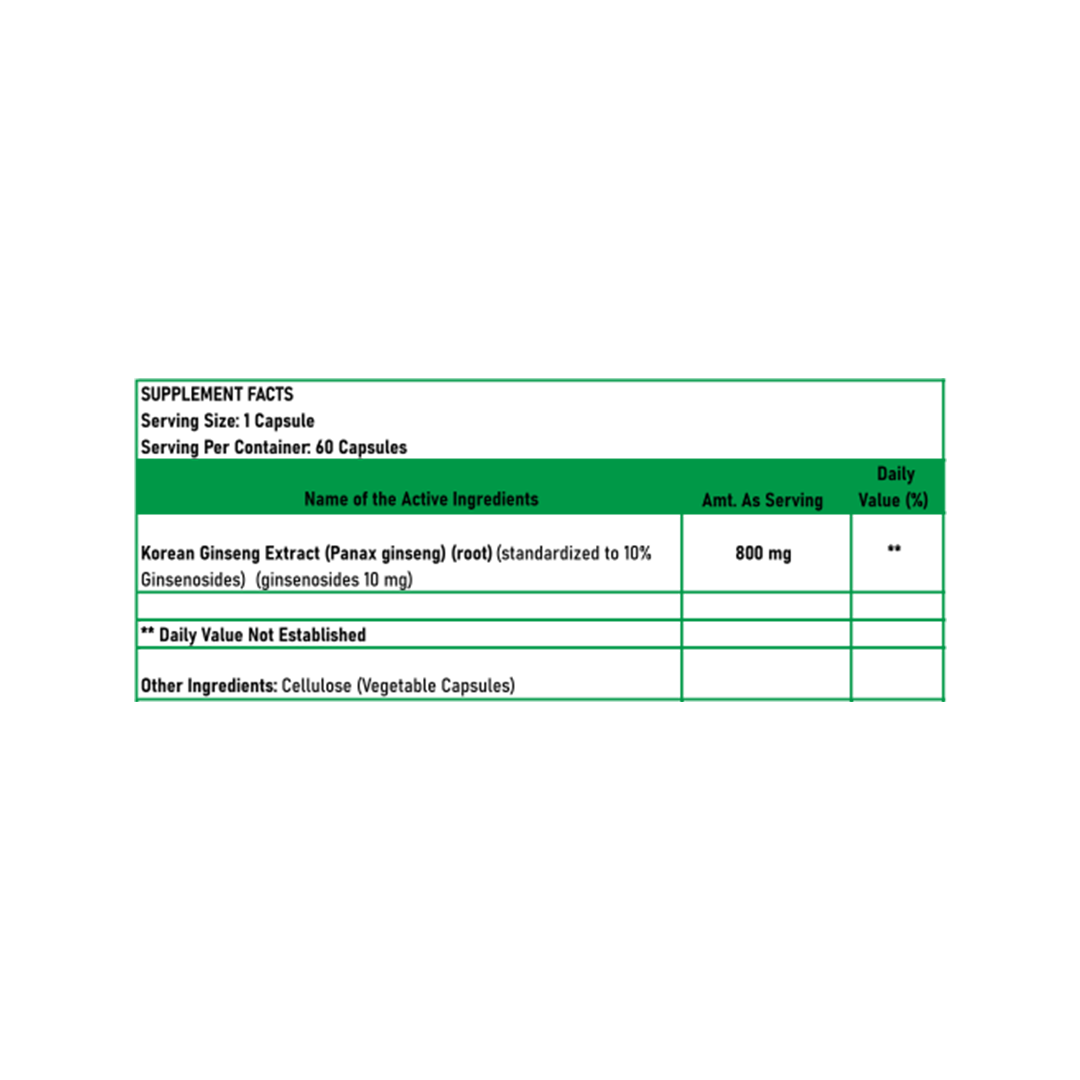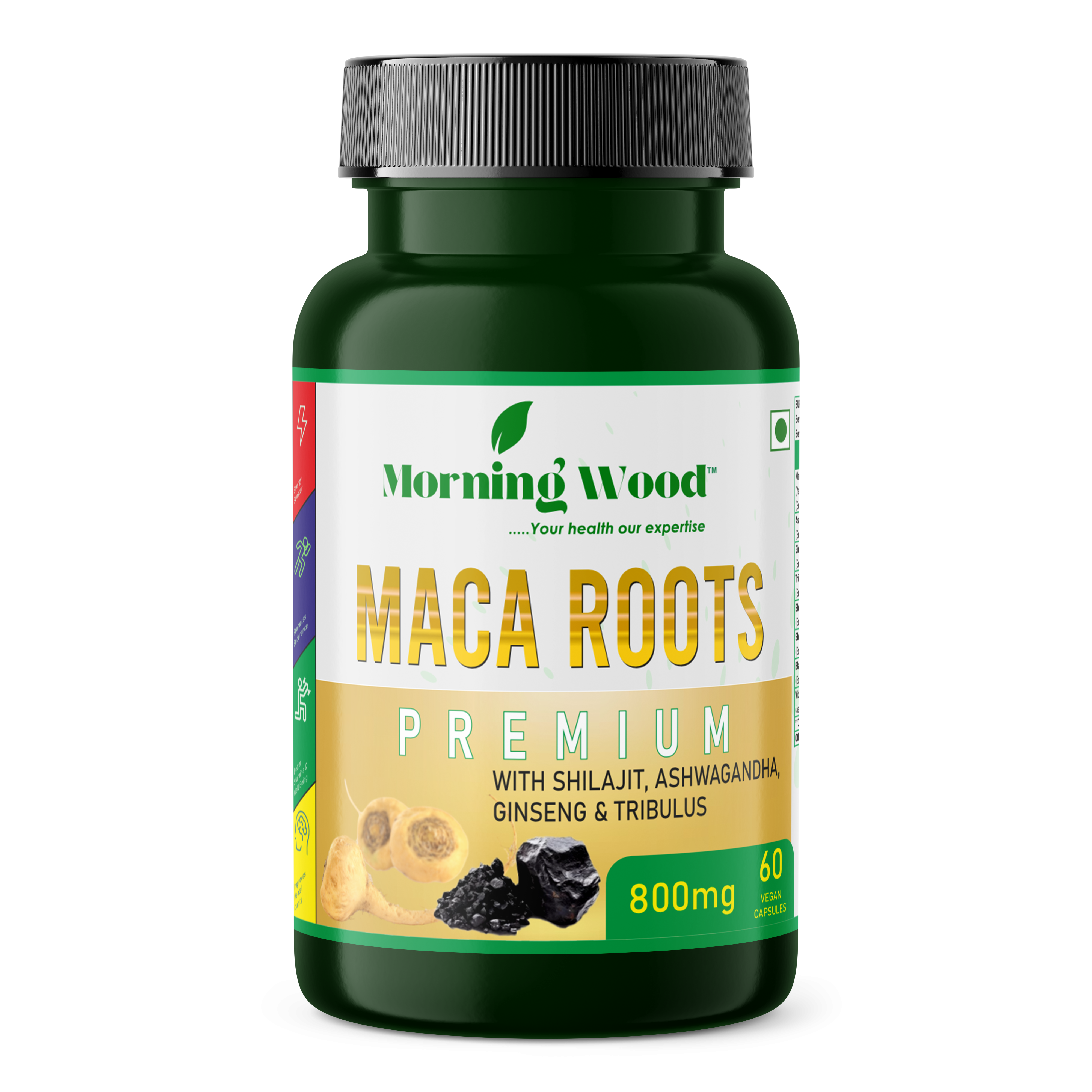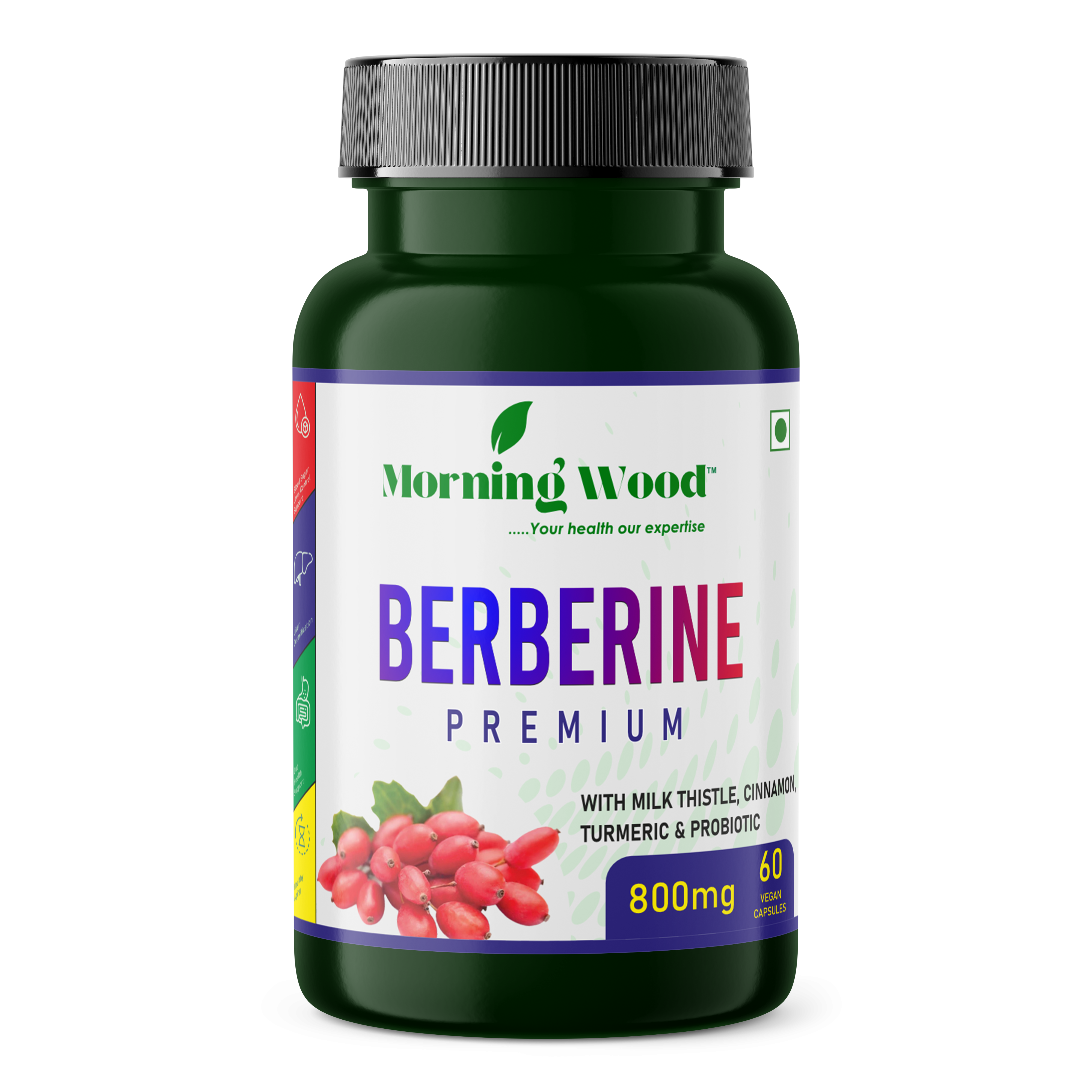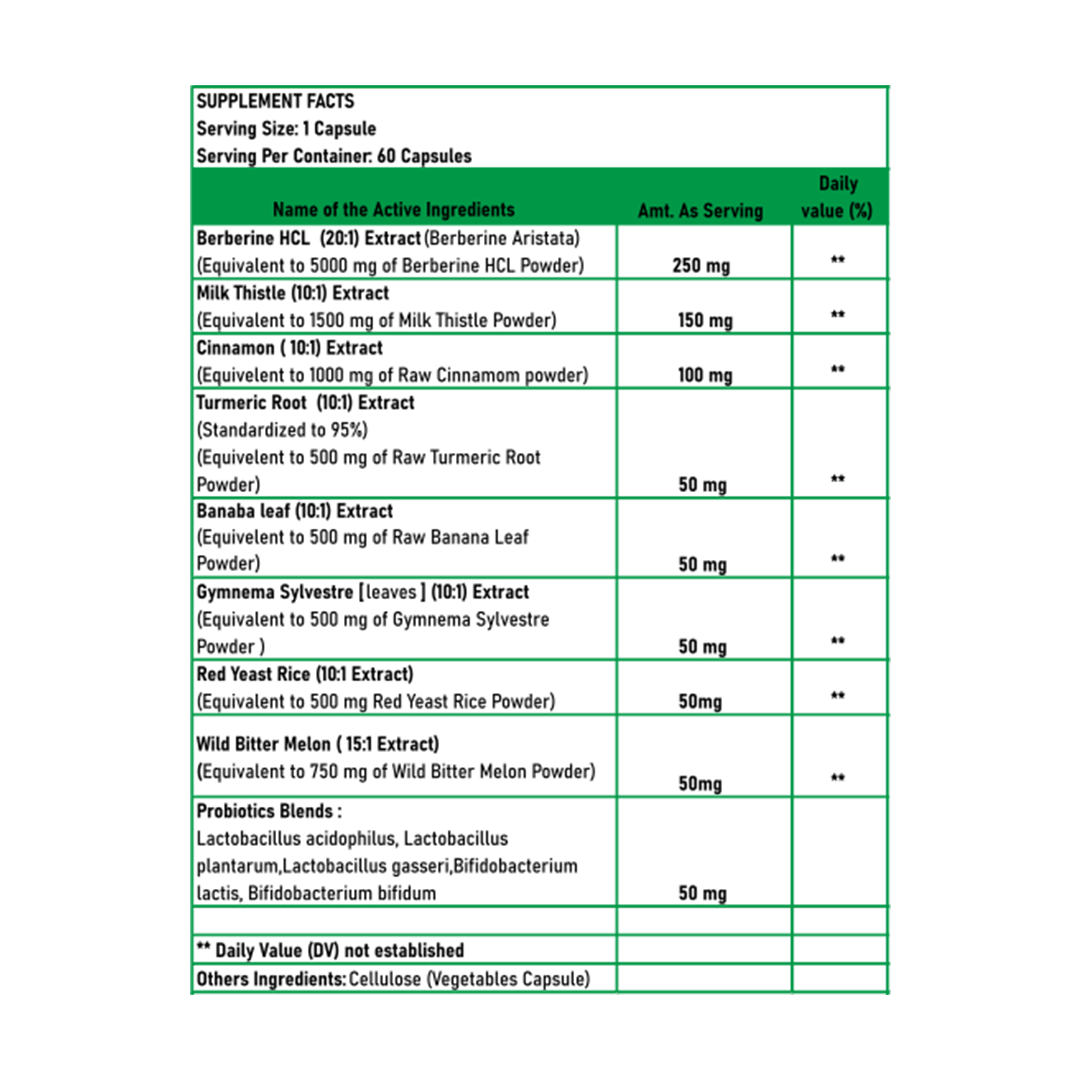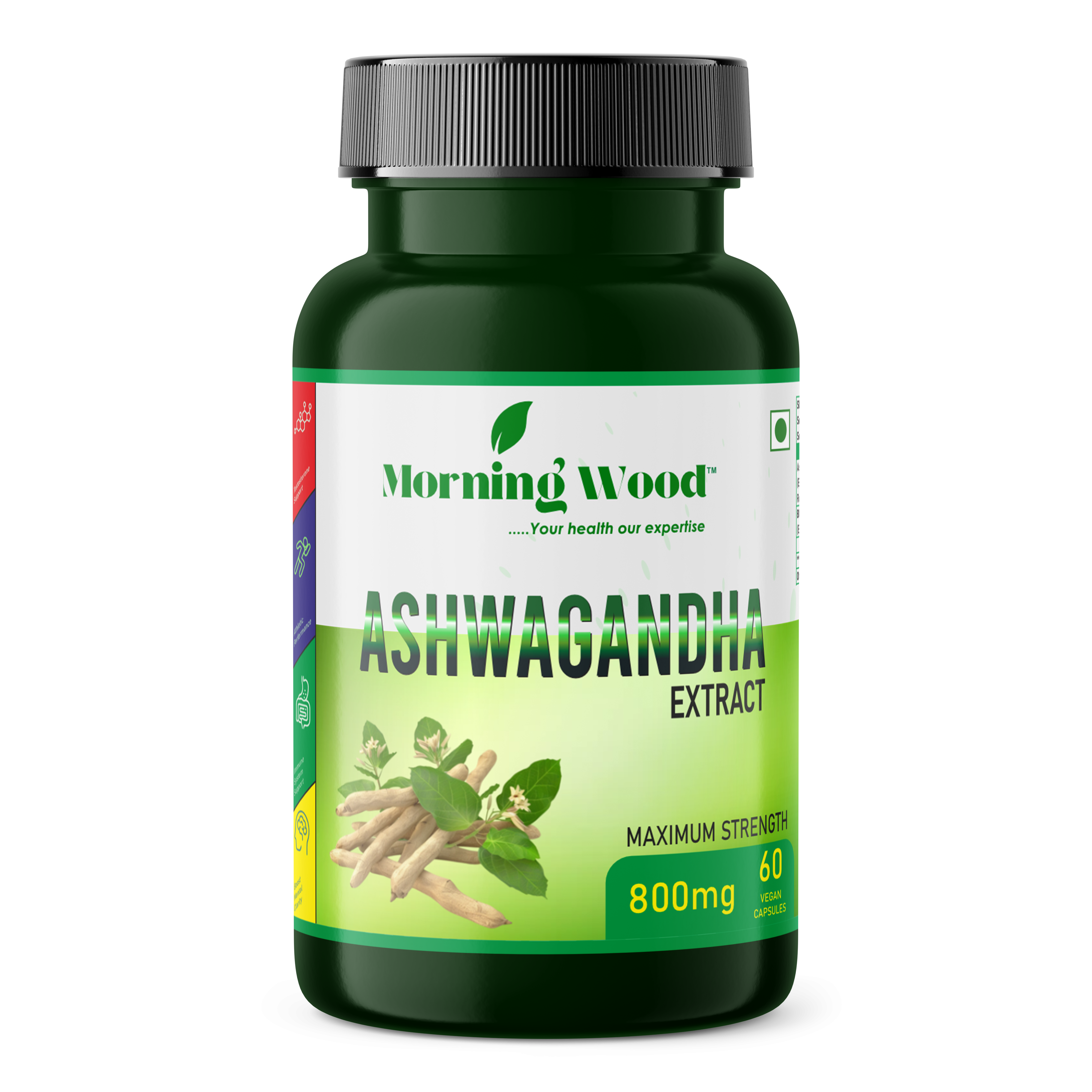
Ayurvedic Tea: Complete Guide to Benefits & Recipes 2025
Ayurvedic Tea: Ancient Wisdom in Every Sip for Modern Wellness
Picture this: it's early morning, and you're holding a warm cup of fragrant tea that doesn't just taste good but actually heals your body from within. That's the magic of ayurvedic tea, a time-tested wellness ritual that has supported human health for over 5,000 years.
In today's fast-paced world, where synthetic supplements and quick fixes dominate the wellness industry, ayurvedic tea stands as a gentle reminder that nature already provided everything we need for optimal health. At Morningwood, we believe in harnessing these ancient botanical secrets to help you achieve genuine, lasting wellness.
What Makes Ayurvedic Tea Different from Regular Tea?
Unlike standard teas which focus primarily on flavor or caffeine content, ayurvedic teas are functional beverages designed to restore harmony and address common imbalances such as stress, indigestion, or lack of energy. These therapeutic blends are deeply rooted in personalized wellness philosophy.
Traditional teas like black tea or green tea come from the Camellia sinensis plant. Ayurvedic tea, however, represents a completely different category. These are caffeine-free herbal infusions crafted from carefully selected herbs, spices, roots, and flowers, each chosen for specific healing properties that align with Ayurvedic principles.
The difference lies in intention. While your morning coffee jolts your system awake, ayurvedic tea gently supports your body's natural healing processes throughout the day.
Understanding the Three Doshas: Finding Your Perfect Ayurvedic Tea
Ayurveda teaches that every person has a unique constitution determined by three fundamental energies called doshas: Vata, Pitta, and Kapha. Understanding your dominant dosha helps you choose the right ayurvedic tea for your body.
Vata Tea: For Air and Space Elements
If you tend toward anxiety, dry skin, irregular digestion, or restlessness, you likely have a Vata imbalance. Vata tea should include warming herbs such as fennel, cloves, ginger, cinnamon, licorice, and stevia.
These grounding ingredients calm the nervous system and provide stability. The warming nature of spices like ginger helps balance Vata's cold, dry qualities. For additional nervous system support, consider our Ashwagandha Extract Capsules, which work synergistically with Vata-balancing teas to reduce stress naturally.
Pitta Tea: For Fire and Water Elements
Pitta dosha represents the qualities of fire and water, and teas balancing this dosha often contain cooling ingredients like mint, coriander, and rose petals. People with Pitta dominance experience heat-related issues such as inflammation, heartburn, irritability, and skin redness.
Cooling herbs like fennel and cardamom soothe Pitta's intense nature. Rose petals add a calming, anti-inflammatory effect. To further support digestive fire balance, our Curcumin Capsules provide powerful anti-inflammatory benefits that complement Pitta-balancing teas.
Kapha Tea: For Earth and Water Elements
Kapha tea ideally includes stimulating ingredients such as cloves, cinnamon, licorice, ginger, cardamom, and black pepper. These energizing herbs help counter Kapha's naturally heavy, sluggish tendencies.
If you experience weight gain, congestion, lethargy, or slow metabolism, Kapha-balancing tea can provide the gentle stimulation your system needs. Pair your morning Kapha tea with our Fat Burner Capsules for enhanced metabolic support.
The Science-Backed Health Benefits of Ayurvedic Tea
Modern research continues to validate what Ayurvedic practitioners have known for millennia. Let's explore the proven benefits of incorporating ayurvedic tea into your daily routine.
1. Digestive System Support
Ayurvedic tea has been used for centuries for digestion and soothing the gut, with herbs and ingredients that support detoxifying the body and boosting the immune system while reducing bloating and gas.
The digestive benefits come from carminative herbs like fennel, cumin, and coriander. These herbs stimulate digestive enzymes, reduce inflammation in the gut lining, and help eliminate accumulated toxins. For comprehensive digestive wellness, try our Digestive Juice alongside your ayurvedic tea ritual.
2. Natural Detoxification
Your liver works tirelessly to filter toxins from your bloodstream. Ayurvedic teas containing turmeric, dandelion root, and licorice support this crucial detoxification process. These herbs stimulate bile production, enhance liver function, and help your body eliminate waste more efficiently.
For targeted liver support, explore our Liver Detox Capsules, formulated with milk thistle and other hepatoprotective herbs that work beautifully with detoxifying teas.
3. Immune System Enhancement
The herbs and ingredients in ayurvedic tea support boosting the immune system, helping your body resist infections and maintain optimal health. Tulsi (holy basil), ginger, and turmeric possess powerful antimicrobial and immunomodulating properties.
These botanicals don't just fight germs; they help regulate immune response, reducing both infections and inflammatory conditions. Our Sea Moss Capsules provide 92 essential minerals that further strengthen immune function when combined with regular ayurvedic tea consumption.
4. Stress Reduction and Mental Clarity
Modern life bombards us with stressors that ancient humans never experienced. Ayurvedic organic tea can improve your life by boosting your mood, calming your nerves, and increasing your energy, despite having no caffeine.
Adaptogenic herbs like ashwagandha, tulsi, and brahmi help your body adapt to stress while supporting cognitive function. For enhanced mental clarity and focus, our Lion's Mane Mushroom Capsules complement the stress-relieving effects of ayurvedic tea perfectly.
5. Weight Management Support
The health benefits of drinking ayurvedic tea are immense and range from aiding weight loss, curing indigestion, brightening the skin, detoxing the body and enhancing the quality of life.
Metabolic herbs like cinnamon, ginger, and black pepper stimulate thermogenesis—your body's natural fat-burning process. These spices also help regulate blood sugar levels, reducing cravings and supporting healthy weight management.
6. Enhanced Sleep Quality
Many ayurvedic tea blends contain calming herbs like chamomile, valerian root, and ashwagandha that promote deep, restorative sleep without the grogginess of pharmaceutical sleep aids. For those struggling with sleep issues, our Herbal Sleep Support Capsules can be taken alongside evening ayurvedic tea for comprehensive sleep support.
Popular Ayurvedic Tea Recipes You Can Make at Home
Creating your own ayurvedic tea blends allows you to customize flavors and benefits to your specific needs. Here are some time-tested recipes to get you started.
Classic CCF Tea (Cumin, Coriander, Fennel)
Cumin, Coriander, and Fennel tea (CCF tea) is one of the simplest and most famous Ayurvedic home formulas for detoxification, weight loss, and the burning up of excess water retention.
Ingredients:
-
1 teaspoon cumin seeds
-
1 teaspoon coriander seeds
-
1 teaspoon fennel seeds
-
4 cups water
Preparation:
-
Add all seeds to water in a stainless steel pot
-
Bring to a boil and simmer for 5-10 minutes
-
Strain and sip throughout the day
This simple three-ingredient tea balances all three doshas and supports digestive health remarkably well. Many people find it reduces bloating within days of regular consumption.
Golden Turmeric Detox Tea
Turmeric's powerful anti-inflammatory compound, curcumin, makes this tea a wellness powerhouse. Combined with black pepper for enhanced absorption, this golden elixir fights inflammation throughout your body.
Ingredients:
-
1 teaspoon turmeric powder
-
1/4 teaspoon black pepper
-
1/2 teaspoon ginger powder
-
1 tablespoon honey
-
2 cups water
-
Squeeze of lemon
Preparation:
-
Boil water and add turmeric, pepper, and ginger
-
Simmer for 10 minutes
-
Strain, add honey and lemon
-
Drink warm
For maximum curcumin benefits, supplement this tea with our Curcumin Capsules, which provide concentrated turmeric extract.
Tulsi (Holy Basil) Immune Booster Tea
Tulsi is an herb that has been used for centuries for its remarkable adaptogenic and immune-supporting properties. This sacred herb reduces stress hormones while strengthening your body's defenses.
Ingredients:
-
10-12 fresh tulsi leaves (or 1 teaspoon dried)
-
1/2 teaspoon ginger
-
2 cups water
-
Honey to taste
Preparation:
-
Boil water with tulsi leaves and ginger
-
Simmer for 5-7 minutes
-
Strain and sweeten with honey if desired
Calming Evening Tea for Better Sleep
Anti-stress herbal tea made from the finest natural ingredients including cinnamon, fennel, orange peel, anise, licorice root, cocoa bark, cloves, tulsi, dandelion, and pineapple is stronger and more aromatic than chamomile tea.
Ingredients:
-
1 teaspoon chamomile flowers
-
1/2 teaspoon ashwagandha powder
-
1/4 teaspoon nutmeg
-
2-3 cardamom pods
-
2 cups water
-
Warm milk (optional)
Preparation:
-
Simmer all ingredients in water for 10 minutes
-
Strain and add warm milk if desired
-
Drink 30 minutes before bedtime
Energizing Kapha Morning Blend
Start your day with this invigorating blend that stimulates metabolism and clears mental fog without caffeine jitters.
Ingredients:
-
1/2 teaspoon ginger powder
-
3-4 black peppercorns
-
2 cloves
-
1 cinnamon stick
-
2 cups water
Preparation:
-
Crush peppercorns and cloves slightly
-
Add all spices to boiling water
-
Simmer for 8-10 minutes
-
Strain and enjoy hot
How to Incorporate Ayurvedic Tea into Your Daily Routine
Making ayurvedic tea a consistent part of your wellness practice doesn't require a complete lifestyle overhaul. Here are practical ways to weave this ancient ritual into modern life.
Morning Ritual
Start your day with a warm cup of ginger-cinnamon tea before breakfast. This awakens your digestive fire (Agni) and prepares your body to absorb nutrients efficiently. Combine this practice with our Multivitamin Capsules to ensure comprehensive nutrient support.
Afternoon Energy Boost
Instead of reaching for your third cup of coffee around 3 PM, try tulsi tea. The adaptogenic properties provide sustained energy without the crash, helping you power through the afternoon slump naturally.
Post-Meal Digestive Support
Sip CCF tea or fennel tea after meals to enhance digestion and prevent bloating. This simple habit can transform your digestive comfort. For additional digestive support, our Constipation Capsules provide gentle relief when needed.
Evening Wind-Down
Create a calming pre-sleep ritual with chamomile-ashwagandha tea. This signals your body that it's time to transition from the day's activities to restful sleep. Dim the lights, put away screens, and sip slowly while practicing deep breathing.
Combining Ayurvedic Tea with Morningwood Supplements
At Morningwood, we've developed a comprehensive range of Ayurvedic supplements that work synergistically with ayurvedic tea to support your wellness journey. Here's how to create powerful combinations for specific health goals.
For Stress and Anxiety Relief
Combine:
-
Morning: Tulsi tea + Ashwagandha Extract Capsules
-
Evening: Calming herbal tea + Herbal Sleep Support Capsules
For Digestive Health
Combine:
-
Before meals: CCF tea
-
After meals: Digestive Juice
-
Weekly support: Constipation Capsules as needed
For Weight Management
Combine:
-
Morning: Ginger-cinnamon Kapha tea
-
Daily: Fat Burner Capsules
-
Metabolic support: Berberine Premium Capsules
For Immune System Support
Combine:
-
Daily: Turmeric-tulsi tea
-
Morning: Sea Moss Capsules
-
Additional support: Quercetin Capsules
For Anti-Aging and Vitality
Combine:
-
Morning: Green tea with herbs + Resveratrol Capsules
-
Evening: Antioxidant tea blend + L-Glutathione Capsules
For Men's Vitality
Combine:
-
Morning: Energizing ayurvedic tea
-
Additional support: Tongkat Ali Extract Capsules
-
Traditional remedy: Shilajit Resin
The Role of Quality Ingredients in Ayurvedic Tea
Not all ayurvedic teas are created equal. The quality of ingredients directly impacts both taste and therapeutic benefits. Here's what to look for:
Organic Certification
Choose organic herbs whenever possible to avoid pesticides and chemical fertilizers that can interfere with the tea's healing properties. Organic farming also supports sustainable agriculture practices.
Freshness Matters
Dried herbs lose potency over time. Purchase from reputable suppliers who provide harvest dates and store herbs in airtight containers away from light and moisture. Ideally, replace dried herbs every six months.
Whole Herbs vs. Powders
Whole spices and herbs retain their essential oils better than pre-ground versions. Grinding fresh just before brewing releases maximum flavor and therapeutic compounds.
Ethical Sourcing
Many Ayurvedic herbs come from wild-harvested or cultivated sources in India and surrounding regions. Support companies that practice fair trade and sustainable harvesting methods.
At Morningwood, we source all our ingredients following these principles, ensuring you receive the highest quality supplements that complement your ayurvedic tea practice.
Common Mistakes to Avoid with Ayurvedic Tea
Even with the best intentions, people sometimes make mistakes that reduce the effectiveness of ayurvedic tea. Here's what to watch out for:
Over-Boiling Delicate Herbs
Flowers, leaves, and some roots can lose their beneficial compounds when boiled too vigorously. Steep delicate herbs at lower temperatures (around 180°F) for 5-7 minutes rather than boiling.
Mixing Incompatible Herbs
Not all herbs work well together. Some combinations can neutralize each other's benefits or even cause digestive upset. Follow traditional recipes or consult an Ayurvedic practitioner when creating custom blends.
Drinking Too Much
More isn't always better. Drinking excessive amounts of certain ayurvedic teas can lead to imbalances. Generally, 2-4 cups daily provides therapeutic benefits without overdoing it.
Ignoring Your Constitution
Drinking tea formulated for a different dosha than your own can create imbalances rather than resolving them. Take time to understand your constitution or work with an Ayurvedic practitioner.
Adding Incompatible Foods
Ayurveda teaches that certain food combinations create digestive toxins (ama). Avoid drinking ayurvedic tea with meals that include incompatible foods like fruit with dairy or fish with milk.
Ayurvedic Tea for Specific Health Conditions
While ayurvedic tea supports general wellness, certain blends specifically target common health concerns.
For Cold and Respiratory Issues
Ayurvedic tea helps get rid of symptoms of cold and cough quickly, with spices like cloves, tulsi, and black pepper helping to treat colds. Add honey and ginger for additional throat-soothing benefits.
For Blood Sugar Management
Cinnamon, fenugreek, and berberine-containing herbs help regulate blood glucose levels. Supplement your tea with our Berberine Premium Capsules and Diabetic Juice for comprehensive blood sugar support.
For Joint Health and Inflammation
Turmeric-ginger tea reduces inflammatory markers throughout the body. Enhance these benefits with our Curcumin Capsules for targeted joint support.
For Heart Health
Hibiscus, hawthorn berry, and arjuna bark support cardiovascular function. Combine these teas with our Cardio Care Juice for comprehensive heart wellness.
For Women's Hormonal Balance
Shatavari, ashwagandha, and rose teas support female reproductive health and hormonal balance. Our Women Care Juice provides additional herbs specifically formulated for women's wellness.
For Cognitive Function
Brahmi, gotu kola, and tulsi enhance memory and mental clarity. Supplement with our Memory Booster Juice and Lion's Mane Mushroom Capsules for optimal brain health.
The Environmental and Spiritual Aspects of Ayurvedic Tea
Ayurvedic tea represents more than just physical healing; it embodies a holistic approach to wellness that includes environmental consciousness and spiritual awareness.
Mindful Consumption
The act of preparing and drinking ayurvedic tea becomes a meditation when done mindfully. Focus on the colors, aromas, and sensations. This present-moment awareness reduces stress and enhances the tea's benefits.
Connection to Nature
Each herb in your cup grew in soil, absorbed sunshine, and drank rainwater. Acknowledging this connection to nature deepens your appreciation and enhances the healing experience.
Sustainable Practices
Supporting organic farming and ethical harvesting practices protects the environment and ensures these precious herbs remain available for future generations.
Scientific Research Supporting Ayurvedic Tea Benefits
Modern science continues to validate traditional Ayurvedic wisdom. Here are some research highlights:
-
Studies show turmeric's curcumin reduces inflammation as effectively as some pharmaceutical drugs
-
Research demonstrates ginger's ability to reduce nausea and improve digestive function
-
Clinical trials confirm ashwagandha significantly reduces cortisol levels and anxiety symptoms
-
Multiple studies validate tulsi's immune-enhancing and stress-reducing properties
-
Research shows cinnamon helps regulate blood sugar and improve insulin sensitivity
This growing body of scientific evidence supports what Ayurvedic practitioners have known for thousands of years—these herbs genuinely heal.
Creating Your Personalized Ayurvedic Tea Protocol
Everyone's body is unique, requiring different herbal support. Here's how to create a personalized ayurvedic tea protocol:
Step 1: Identify Your Needs
What health concerns would you like to address? Digestive issues? Stress? Sleep problems? Weight management? List your top three priorities.
Step 2: Determine Your Dosha
Take an online dosha quiz or consult with an Ayurvedic practitioner to understand your constitutional type. This guides your herb selection.
Step 3: Choose Your Base Herbs
Select 2-3 primary herbs that address your specific needs and balance your dosha. These become the foundation of your daily tea.
Step 4: Add Supporting Herbs
Include 1-2 additional herbs that enhance flavor and provide complementary benefits.
Step 5: Adjust Seasonally
Your needs change with seasons. Modify your tea blend quarterly to align with seasonal energies and maintain balance.
Step 6: Track Your Results
Keep a simple journal noting how you feel after 2 weeks of consistent tea drinking. Adjust your formula based on results.
Storage and Shelf Life of Ayurvedic Tea Ingredients
Proper storage ensures your herbs maintain maximum potency:
-
Store in airtight glass containers in a cool, dark place
-
Keep away from moisture, heat, and direct sunlight
-
Label containers with purchase dates
-
Replace dried herbs every 6-12 months
-
Whole spices last longer than ground—grind fresh when possible
Beyond the Cup: Other Ways to Use Ayurvedic Herbs
While tea is the most common preparation method, these versatile herbs can be used in various ways:
-
Golden milk (turmeric latte) before bed
-
Herbal powders in smoothies
-
Spice blends for cooking
-
Herbal ghee infusions
-
Face masks with cooling herbs for Pitta skin
The Morningwood Commitment to Ayurvedic Wellness
At Morningwood, we're passionate about making authentic Ayurvedic wisdom accessible to modern wellness seekers. Our comprehensive product line supports every aspect of your health journey:
-
Adaptogenic Support: Ashwagandha, Cordyceps Mushrooms
-
Digestive Health: Digestive Juice, Constipation Relief
-
Anti-Aging: Resveratrol, L-Glutathione
-
Energy & Vitality: Shilajit Resin, Maca Root
Every product undergoes rigorous quality testing to ensure purity, potency, and safety. We never compromise on ingredient quality because your health deserves the best.
Frequently Asked Questions About Ayurvedic Tea
How quickly will I see results from ayurvedic tea?
Some benefits like improved digestion and reduced bloating may appear within days. Deeper healing for chronic conditions typically requires 4-6 weeks of consistent use.
Can I drink ayurvedic tea while pregnant?
Some herbs are safe during pregnancy while others should be avoided. Always consult your healthcare provider before starting any herbal protocol during pregnancy or breastfeeding.
Will ayurvedic tea interfere with my medications?
Some herbs can interact with pharmaceutical drugs. Discuss your ayurvedic tea plans with your doctor, especially if taking blood thinners, diabetes medications, or immunosuppressants.
How much tea should I drink daily?
Generally, 2-4 cups spread throughout the day provides therapeutic benefits without overwhelming your system. Listen to your body and adjust accordingly.
Can children drink ayurvedic tea?
Mild herbal teas like fennel or chamomile are generally safe for children over age 2. However, avoid stronger herbs and always use half the adult dosage for children. Consult a pediatrician first.
Is ayurvedic tea caffeinated?
Most traditional ayurvedic teas are naturally caffeine-free. However, some modern blends incorporate green or black tea leaves, which do contain caffeine. Always check ingredients.
Can I sweeten my ayurvedic tea?
Raw honey is the preferred Ayurvedic sweetener. Add it after the tea cools below 108°F to preserve honey's beneficial enzymes. Avoid refined sugar as it creates ama (toxins).
Conclusion: Your Journey to Wellness Starts with a Single Sip
Ayurvedic tea represents a beautiful bridge between ancient wisdom and modern wellness needs. Each cup you drink connects you to thousands of years of healing knowledge while providing measurable health benefits validated by contemporary science.
The path to optimal health doesn't require complicated protocols or expensive interventions. Sometimes, the most powerful healing comes from simple rituals performed with intention and consistency.
Start today. Choose one ayurvedic tea recipe that resonates with your needs. Brew it mindfully. Sip slowly. Notice how your body responds. Then tomorrow, do it again.
At Morningwood, we're honored to support your wellness journey with premium Ayurvedic supplements that complement your tea practice. Whether you're seeking stress relief, digestive support, immune enhancement, or vitality restoration, our authentic formulations honor traditional wisdom while meeting modern quality standards.
Your body possesses innate healing wisdom. Ayurvedic tea and targeted supplementation simply provide the nourishment and support your system needs to heal itself naturally.
Explore our complete range of Ayurvedic supplements and wellness products to create your personalized wellness protocol. Every journey begins with a single step—or in this case, a single sip.
Disclaimer: This article is for informational purposes only and does not constitute medical advice. Always consult qualified healthcare professionals before starting any new supplement regimen or making significant changes to your diet or wellness routine.

